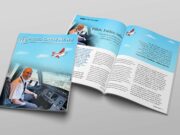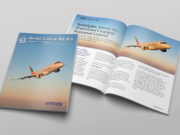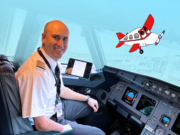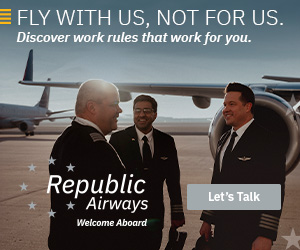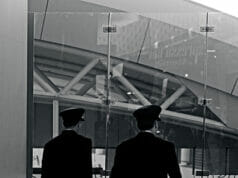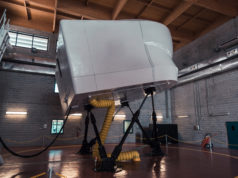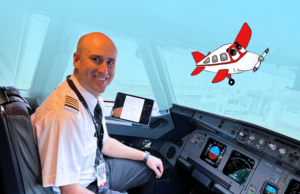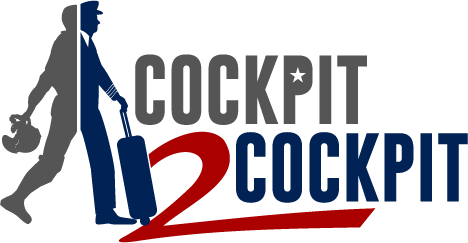
Recently, one of my Cockpit to Cockpit readers sent me an email in which he asked: “Is the grass really greener on the other side?” He is on active duty with about two and a half years remaining on his service commitment and he wanted to know if the airline pilot lifestyle is worth leaving active duty. He sent me this email during the Christmas holidays while serving in a deployed location in the Middle East. My response to his question is written below. I know he’s not the only one asking themselves this question, so I wanted to share my response in hopes that airline-hopefuls may learn something.
An airline job is a completely “different animal” than being a military pilot. I guess it depends upon who you ask and what their circumstances are, but for me it’s a resounding YES! — the grass really is greener. There are a few other pilots in this business who would give you the opposite response, telling you this job “sucks rotten eggs,” that “you’re better off staying in the military.” It’s all about how you choose to approach this job and the attitude you bring with you to work. For me, it’s a conscious decision. When I put on my airline uniform, I am a professional, and I choose to stay as positive as possible in my interactions with my Captain, my crewmembers, and especially my customers because ultimately, they pay my salary (which is really good and getting better all the time).
That’s not to say that it’s all sunshine and lollipops at the airlines. There are certain aspects of this job that can be tough. Obviously, you’re on the road, spending a lot away from your family, but that’s what you’re paid to do. Sometimes the days are long, the weather is bad, and your schedule changes, or you are stuck in a crash pad in New York City on reserves. Again, it’s what you are paid to do, and you knew the deal upfront, when you signed on to do it. So, you can accept those things and make the most of it, or you can choose to be miserable. That’s a choice. The good news is, unlike the military, you are free to walk away at any time if you decide this is no longer for you.
I’m also not saying that my time in the Air Force was bad … it wasn’t. Just like any job, there were ups and downs, but overall, my military experience was a great one, mostly owed to the people and the flying. One thing I loved in the military, that just doesn’t exist in the airlines, is the squadron camaraderie. You leave that behind when you take off the flight suit and go to the airlines. There are no roll calls, naming ceremonies, First Fridays, etc. The best you can hope for is a lively push to the hotel bar at the end of the day by the dozen or so crew who are staying at that hotel on any given night. The company holds a couple of functions a year for employees and families, but it’s not the same.
The pilots with whom I have flown in the airlines are 95% great guys/gals with whom I have thoroughly enjoyed spending time. Of course, there is that 5%. That’s one of the downsides of an airline job — when you get stuck with a 5% pilot, you are usually stuck with him/her for the next three to four days. Make the most of it; try to learn something from the experience. Then when you get home, put them on your avoidance bid so you won’t get paired with them again. I think most airlines have this option. (You don’t get that in the military.)
Airline flying is never going to compare with the rush of a 4 v X DACT, pulling Gs, and dropping bombs on bad guys, as I did in my past life and as you’re doing now. So yes, I miss that stuff. But as I think back on my Air Force career, as a conservative estimate, it was about a 1:12 ratio. For every hour I spent flying, I would spend about 12 hours busting my ass doing all sorts of non-flying work that never seemed to be enough for the Air Force. Some of it was queep, and some of it was genuinely important work that needed to be done to keep Big Blue running or somehow improve it, but all of it pulled me away from my one true passion — being a pilot.
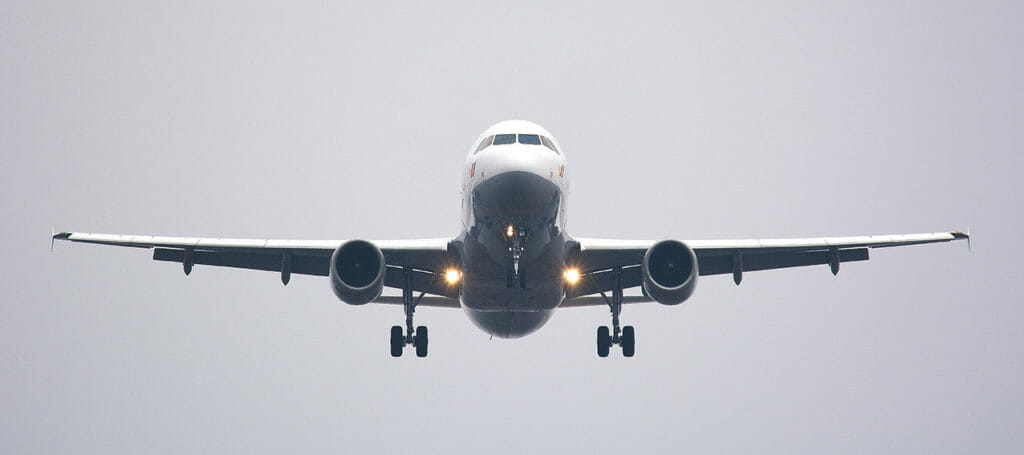 In my airline job I get paid to do one thing and one thing only — take paying passengers into the air and return them safely to the earth. If we can manage to do that and get them where they wanted to go on-time and with all their stuff intact, well, that’s just a bonus. The point is, I show up, I do my job, I go home (or to the hotel). That’s it. There are no emails to check at the end of the day, no queep, and no performance reports to write. I know who the Chief pilot is but I never have to see him unless I really screw up (which hasn’t happened yet, knock on wood). You get the picture. This is truly a job you don’t have to take home with you. My days off are fully mine to spend with my family or however I choose.
In my airline job I get paid to do one thing and one thing only — take paying passengers into the air and return them safely to the earth. If we can manage to do that and get them where they wanted to go on-time and with all their stuff intact, well, that’s just a bonus. The point is, I show up, I do my job, I go home (or to the hotel). That’s it. There are no emails to check at the end of the day, no queep, and no performance reports to write. I know who the Chief pilot is but I never have to see him unless I really screw up (which hasn’t happened yet, knock on wood). You get the picture. This is truly a job you don’t have to take home with you. My days off are fully mine to spend with my family or however I choose.
Another thing the airlines is never going to replace is that pride in serving your country. That’s why, as military pilots, we are willing to take on all those additional duties, deployments to the desert during the holidays, long hours, and hard work to become the best at our mission — because at the end of the day, we all love this country and we put our service above ourselves. Sadly, that strong sense of purpose and sacrifice are missing as an airline pilot. It’s partially replaced by the satisfaction of knowing that you are connecting people with all the important things in their lives — a business meeting, a family reunion, a vacation, even a funeral. But, that can’t quite replace the feeling of serving your country.
In my opinion, this job is all about quality of life. The beautiful thing is that you get to decide what that means to you. For some pilots, quality of life means being able to live in the city of their choice because their kids get to stay in a good school (or whatever other reason) and being able to commute to work easily. For others (myself included) it means living in domicile and driving to work. Some pilots may define it as the ability to have a flexible schedule so that if you want, you can take a week off just by trading some trips with the company or other pilots. Others may define it as the nearly unlimited ability to pick up extra trips when they want to add to their income. Maybe quality of life is having half the month off while still making a healthy salary. In all cases, your seniority is directly proportional to your quality of life — as your seniority grows, you will get better schedules, better domiciles, faster upgrades to other airframes, more vacation time, etc. Here again, it comes down to choices. For example, you become eligible to upgrade to a wide-body, higher paying airframe based on your overall system seniority. But, if you take that upgrade, you will become the most junior first officer (FO) in that airframe within your domicile and therefore have the worst schedules and be on reserve again. It’s all about choices.
I’ve been an airline pilot for just a year and a half. I’m domiciled in Dallas where I live about 20 minutes from the airport. I was able to hold Dallas in just my third month and I was holding a line (off reserves) in my fifth month. Within my first year, we took three amazing weeklong vacations without having to use a single vacation or sick day. With the recent hiring wave, I’m sure other pilots at other airlines have similar stories. The industry is riding a historic high right now.
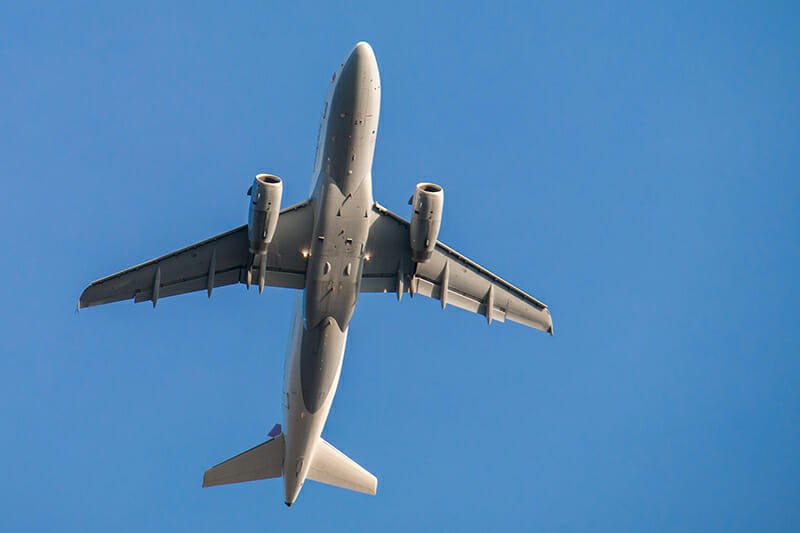 The time-away-from-family factor may be a very real concern, but I honestly think that overall, I have more time with my family now than I did when I was on active duty because, A) I don’t have to deploy for months at a time, and B) my time off is truly mine with no additional duties. As an example, in December, I spent 22 nights at home. I worked a total of 15 days and had 16 days off. I still made good money earning second-year rates while being credited with 103 hours of pay (although I didn’t actually have to fly 103 hours — more like 80 hours). I had to work Christmas day but I was home for Christmas Eve and Thanksgiving.
The time-away-from-family factor may be a very real concern, but I honestly think that overall, I have more time with my family now than I did when I was on active duty because, A) I don’t have to deploy for months at a time, and B) my time off is truly mine with no additional duties. As an example, in December, I spent 22 nights at home. I worked a total of 15 days and had 16 days off. I still made good money earning second-year rates while being credited with 103 hours of pay (although I didn’t actually have to fly 103 hours — more like 80 hours). I had to work Christmas day but I was home for Christmas Eve and Thanksgiving.
Keep in mind that my situation is a bit different because I stayed on active duty until I retired. If you’re planning to Palace Chase (separate and start flying with the Guard/Reserve) it’s a slightly different story because on your time off from the airlines, you will be bouncing back and forth to your military job. Most of the pilots I’ve talked to who do this tell me that it can lead to burn-out pretty quickly, unless you structure it with both employers to make it manageable. I’m sure there are challenges associated with staying proficient in both jobs. This is not to say that you should not consider it. There are some very good benefits to going that route also. You get to keep working toward a military retirement while getting your foot in the door and starting to build seniority with your airline. You also get to keep doing the “fun” flying in the military and experience the squadron camaraderie the airlines are lacking.
Before I leave you to chew on all of this, I want to make sure I give you some additional food for thought about benefits and job security (or lack thereof). The benefits in the airlines are pretty amazing right now. FOs are starting out at the majors between about $75K-$85K per — a far cry better than the $40K per year from just a few years ago. Within about 5 years, you should be easily in the $145K-$165K range, and as a Captain you can easily earn more than $250K before too long. Some Captains I’ve talked to make upward of $350K a year. It all depends on how much you want to work and/or how well you work the system.
Additionally, most airlines contribute between 12% to 16% monthly to your 401K without you having to lift a finger. That’s 12%-16% into your retirement above whatever you decide to contribute. Also, many airlines provide profit sharing which in the past few years, has been about the equivalent of two months’ salary. Some airlines pay this as cash to you; others contribute it to your retirement fund.
Vacation time starts at one to two weeks of paid vacation per year and usually grows to five to six weeks by the ten-year point. There are some scheduling tricks that will add an extra three to four days to every one-week block of vacation you use so that you can easily turn three weeks of vacation into almost five weeks of vacation time.
You and your family (including your parents) can fly for free, space available, anywhere your airline serves. Additionally, most airlines around the world participate in Zed Fares allowing you and your family (and parents) to travel space-available on many other airlines for just the cost of the taxes associated with that ticket.
The health plans are good, but generally a bit more expensive than Tricare premiums.
Okay, last thing — I mentioned job security. I would be remiss if I told you all these wonderful things about being an airline pilot without warning you about a major downside. The airline industry has a long history of instability. As I’m sure you are aware, words like strike, furlough, merger, acquisition, and chapter 11 are synonymous with the airlines. There is no airline immune to these issues, but some are more prone than others. Another 9/11, oil prices returning to $100+/barrel, or an economic downturn could easily turn this historic industry high into another slump. Consider the history of each airline with respect to those words and examine their financial health. The Cockpit to Cockpit Support Package (http://www.cockpit2cockpit.com/shop/product-3-2) includes an Airline Comparison spreadsheet that allows you to rank-order your airline choices using a points system based on the factors that are most important to you.
I could go on for days (I already have), but I hope this answers your question: “Is the grass really greener on the other side?” The bottom line is that it sure can be if you play it right. It’s all about choices, quality of life, timing, a little bit of luck, and keeping a positive outlook. It would be very easy not to be happy some days — to fall into the trap of griping about everything (as some airline pilots choose to do) but, this job is just too good to come to work in a bad mood!


